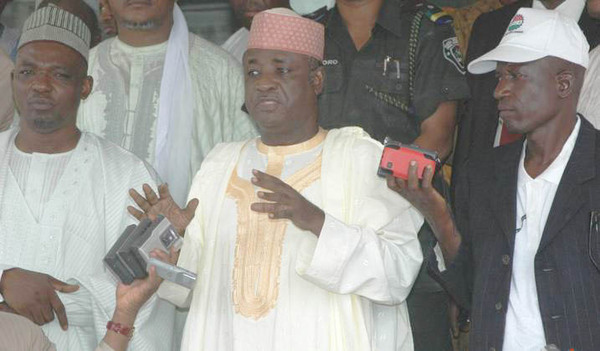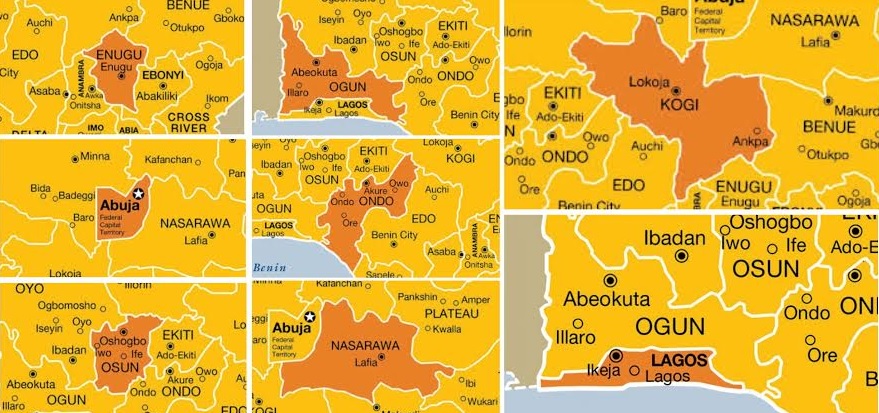The demand and supply conditions of the equities market are expected to continue to reflect the financial markets disquiet that set foreign portfolio traders on the run since last year. The second quarter appears to be a period of caution and lukewarm when traders and investors will seek to establish where Nigeria’s post election economy will be headed. Signals for stability and recovery of share prices aren’t to be expected until the third quarter. That of course presupposes that no significant electoral disturbances will happen.
Despite that the second quarter will see the peak of corporate earnings releases, that isn’t expected to be a sufficient force to spur a bullish turn. There was not much optimism about corporate earnings growth in the first place and actual results so far are indicating even worse performance than anticipated.
Interest expenses are claiming growing proportions of corporate revenues and highly indebted companies are in real trouble. Added to this is the devaluation of the naira, which is estimated to have caused a drop of an average of 11% in corporate profits. Exchange rate losses from about 16.7% devaluation of the naira are hitting company bottom lines.
Investor confidence is dampened not only by current results but more so by depressive future earnings outlook. Inability to improve sales volume even before the devaluation of the naira is the major cause of poor corporate results. A new round of general price increases resulting from the devaluation is bound to worsen the corporate selling environment.
Advertisement
Manufacturers are no longer able to pass on rising costs to consumers even for basic products. Any increases in product prices directly result in several billion naira losses in sales revenue. While investors are earnestly watching daily share price movement expecting recovery to begin, there seems to be a blind eye turned to the growing operating difficulties companies are facing and the resulting denting of corporate fundamentals.
Latest earnings reports continue to show flat or significant slowdown in sales revenue of companies, slow growth or drop in profit and inability to improve dividends. Dangote Cement, which accounts for about a quarter of the equities market capitalization, is a typical case of the stream of corporate earnings disappointments. Its full year result for 2014 operations showed a drop of 20.7% in after tax profit to N159.50 billion following a flat growth in sales revenue and rising cost of sales.
Mobil Oil Nigeria was also unable to improve sales revenue at N79.58 billion in 2014 but a windfall from non-continuing transaction enabled it to push up net profit by 84% to N6.39 billion. Dividend is marginally raised to N6.60 for the company’s shareholders. UBA showed a slowdown in revenue growth from 20.2% in the preceding year to 9.5% to N290.02 billion in 2014. After tax profit improved only marginally at 2.8% to N47.91 billion, yet well below its peak profit figure of N54.77 billion in 2012. It has cut down dividend from 50 kobo to 10 kobo per share.
Advertisement
Julius Berger suffered a decline of 7.5% in turnover to N196.81 billion at the end of 2014 and after tax profit edged up by 4.9% to N8.24 billion. Sterling Bank improved gross earnings by 13% to N103.68 billion in 2014 and after tax profit improved by 8.8% to N9.0 billion. These are considerable decelerations from growths of 44.6% in revenue and 19% in after tax profit in 2013 respectively. It has cut dividend per share from 25 kobo in the prior year to 6 kobo.
Unilever has reported a decline of 7% in sales revenue to N55.75 billion and a fall of 49% in after tax profit to N2.41 billion, the lowest profit in several years. Cadbury Nigeria’s turnover dropped by 15% to N30.52 billion in 2014 and its after tax profit fell by 75% to N1.51 billion.
Total Nigeria closed last year with revenue flat at N240.62 billion while after tax profit dropped by 17% to N4.42 billion, the lowest profit in three years. It is paying a final dividend of N9.0 per share in addition to an interim of N2.0. Nigerian Aviation Handling Company shows a flat growth in turnover in 2014 at N8.13 billion while after tax profit dropped by 30.4% to N568 million.
FCMB is one of the best performers on earnings records so far, showing stable growth in revenue and accelerated growth in profit. The good performance is in line with our expectation in bank earnings outlook that shows the bank as one of the few defying the general trend in the industry. The bank improved gross earnings by 13.5% to about N149 billion while its after tax profit grew well ahead of revenue by 38.3% to N22.13 billion. It has reduced its dividend from 30 kobo per share in the preceding year to 25 kobo.
Advertisement
Add a comment







